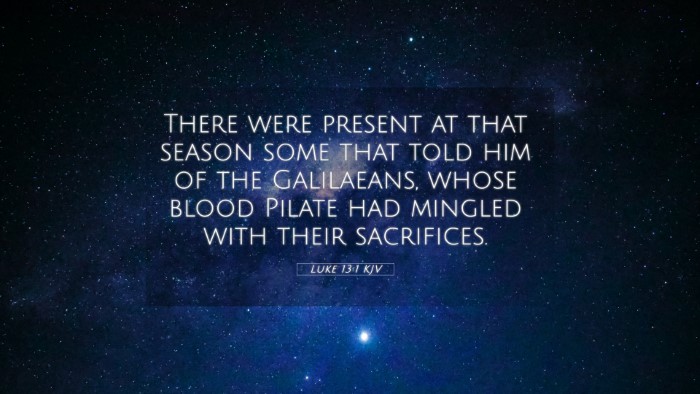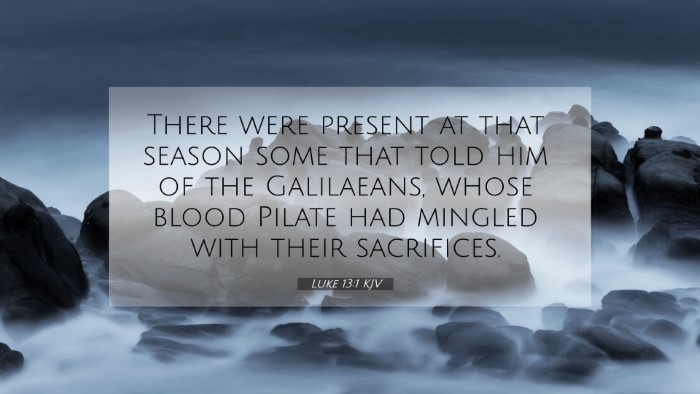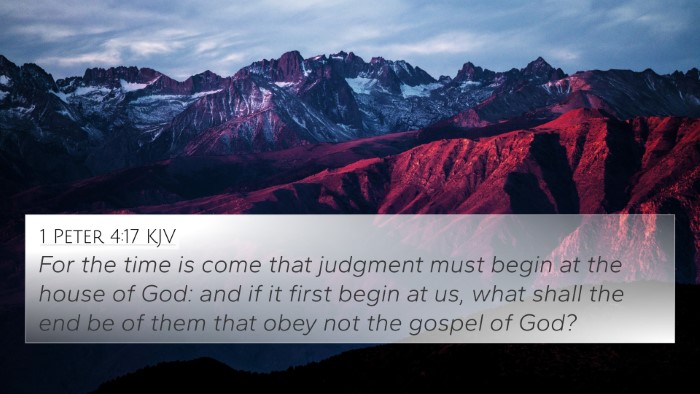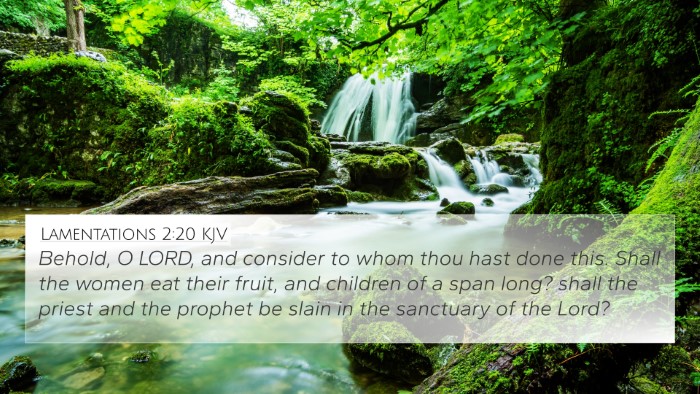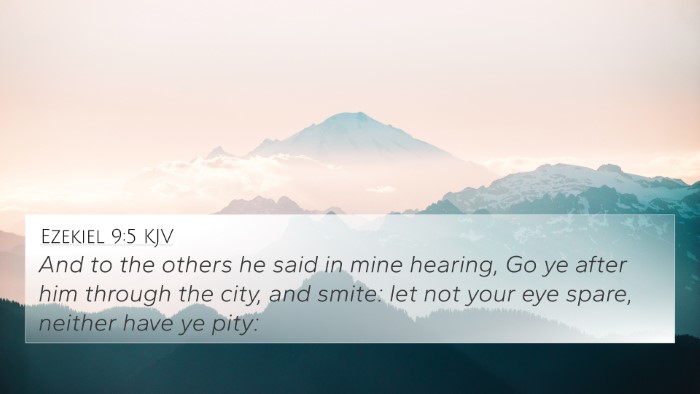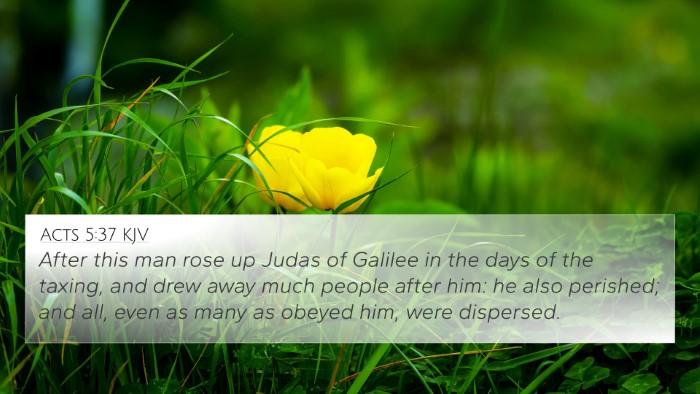Bible Verse Meaning: Luke 13:1
Verse Reference: Luke 13:1 - "There were present at that season some who told Him about the Galileans whose blood Pilate had mingled with their sacrifices."
Overview
The context of Luke 13:1 revolves around a tragic event where Galileans were killed by Pilate, and their blood was mixed with the sacrifices they were bringing. This confrontation prompts Jesus to address deeper moral and theological questions, emphasizing repentance and the nature of suffering.
Interpretation Insights
- Matthew Henry: Highlights that the inquiry of the people reveals a typical response to calamities, drawing connections to divine judgment. He emphasizes that Jesus redirects the discussion toward personal repentance rather than speculative theology about the victims' state of righteousness.
- Albert Barnes: Notes that the Galileans’ deaths reflect on the broader theme of God's justice. Barnes stresses that calamities can serve as warnings for us to reflect on our own lives and the need to return to God.
- Adam Clarke: Offers insight into the historical context of the event and underlines the contrast between the sufferings of the Galileans and the importance of self-examination to avoid such fates. Clarke emphasizes the necessity of repentance and spiritual vigilance.
Theological Themes
This passage raises several theological themes related to suffering, judgment, and the quest for personal righteousness. The call to repentance becomes paramount, as Jesus implies all people should consider their lives in light of inevitable judgment.
Bible Cross-References
- Luke 13:3: "I tell you, no; but unless you repent, you will all likewise perish." – Emphasizes the call for repentance in light of tragedies.
- John 9:2-3: "And His disciples asked Him, saying, 'Rabbi, who sinned, this man or his parents, that he was born blind?' Jesus answered, 'Neither this man nor his parents sinned, but that the works of God should be revealed in him.'" – Clarifies that suffering is not always a punishment for sin.
- Romans 3:23: "For all have sinned and fall short of the glory of God." – Connects the universal need for repentance.
- Hebrews 9:27: "And as it is appointed for men to die once, but after this the judgment." – Affirms the notion of judgment following life.
- Luke 12:4-5: "And I say to you, My friends, do not be afraid of those who kill the body, and after that have no more that they can do. But I will show you whom you should fear: Fear Him who, after He has killed, has power to cast into hell; yes, I say to you, fear Him!" – Discusses the importance of fearing God above men.
- James 4:14: "Whereas you do not know what will happen tomorrow. For what is your life? It is even a vapor that appears for a little time and then vanishes away." – Reflects on the fleeting nature of life.
- Matthew 24:22-24: "And unless those days were shortened, no flesh would be saved; but for the elect's sake those days will be shortened." – Indicates urgency in recognizing one’s spiritual state amidst troubling times.
- 1 Peter 4:17: "For the time has come for judgment to begin at the house of God; and if it begins with us first, what will be the end of those who do not obey the gospel of God?" – Points to personal accountability for believers.
- Ecclesiastes 7:14: "In the day of prosperity be joyful, but in the day of adversity consider: surely God has appointed the one as well as the other, so that man can find out nothing that will come after him." – Reminds us of God’s sovereignty over both good and bad circumstances.
Conclusion
In summarizing the meaning of Luke 13:1, we see that the verse serves as a poignant reminder of the unpredictability of life and the imperative for human beings to engage in self-reflection and repentance. The overarching message is not just to speculate on the fate of others but to actively consider our own standing with God. By linking this passage to cross-references found throughout the Bible, we grasp a fuller understanding of the necessity for righteous living and the call from God to turn from sin.
Exploring Connections
As readers delve into the connections between Bible verses, they can utilize tools for Bible cross-referencing, such as concordances or systematic study guides, to further explore these themes. Understanding the interconnectedness of Scripture enhances our comprehension and appreciation of God's Word.
Tools for Further Study
- Bible concordance
- Cross-reference Bible study method
- Bible cross-reference guide
- Comprehensive Bible cross-reference materials
- Identifying connections between Old and New Testament

